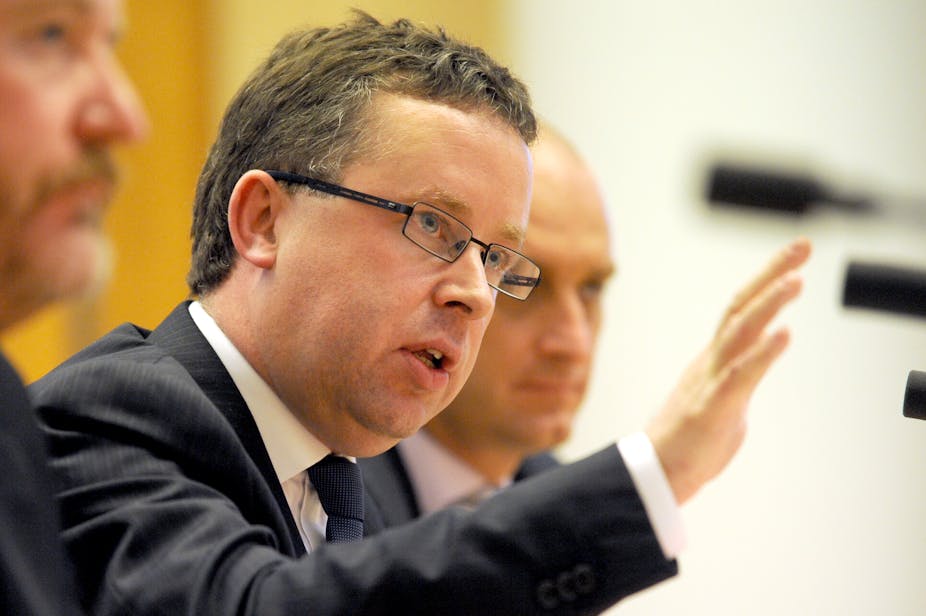Senator Nick Xenophon’s call for change to the Qantas Sale Act has made headlines across the world this week. He has challenged the Senate committee to support amendments to the Act that would require Qantas, and its low-cost sibling, Jetstar, to pay all employees at Australian rates of pay and to base aircraft maintenance operations in Australia.
Jetstar CEO Bruce Buchanan stated that if the airline was forced to make these changes, it would have to cut back on flights to Darwin and Cairns. At the same time, Qantas CEO Alan Joyce responded to Senator Xenophon’s motion, expressing “grave fears for the future of Qantas if these legislative proposals come into effect”, provoking the Senator to label Mr Joyce’s response as “ridiculous”.
Whilst the Senator’s initiative might be seen as a staunch defence of Australian business and jobs, the impartial observer might also consider it nationalistic and protectionist in a globalised business world – politically motivated rather than based upon business rationale. That said, Alan Joyce’s ‘"we’re all doomed’ response" - threatening closure or sell-off of Jetstar and deep cuts to Qantas - might be viewed as crying wolf yet again.
The Australian political/business arena has been dominated of late by calls for and some action towards protection of Australian onshore businesses and jobs. We have seen federal government commitment to funding Ford’s continuing production in Victoria, conflict over plans for and cost of replacing the ageing Collins submarines and criticism of the banking sector for offshoring jobs and retrenching Australian staff.
Whatever our personal views on these matters, we need to consider them in a global context and, in addition, in a more inclusive local context. In relation to the latter, the retrenched employee, or owner of the many small businesses forced into liquidation each year, might wonder why their company is not being offered the lifebelt of government subsidies.
That argument aside, what are Qantas’ worries as a global player? The airline must compete internationally and must be free to do so within its industry sector. To do so, it must be free to hire and fire employees, buy and lease aircraft and to sell their seats in the same “bull ring” as its competitors, who will show no mercy in seeking to take over its market share.
Before this week’s debacle, and with the pre-Christmas closure a fading memory, the most serious issue facing Qantas, along with Jetstar and their major Australian competitor Virgin Australia, was the cost of aviation fuel. Australian airlines buy their fuel, which represents upwards of 40% of their operating costs in a global market. They also buy and lease their aircraft, their financing and much more in this global market in which there is economic stagnation and contraction and political conflict in many parts. Whilst Australia stays the ‘lucky country’ and the dollar remains strong, this is a very difficult market for Qantas specifically because of the scale of its international operations.
In the 2011 annual report, Qantas chairman Leigh Clifford AO stated that “with considerable uncertainty in global economic conditions, fuel prices, foreign exchange rates and the industrial relations environment, it is vital that the Group continues to manage capital effectively … [and] allocate[s] capital to business areas that deliver sustainable returns in order to maintain earnings and profitability.”
Arguments about Qantas/Jetstar’s need for business competitiveness will, however, cut no ice with those who cry: “What about Australian jobs?” Here, however, I see a wider concern with Senator Xenophon’s call. If he has serious concerns about poor levels of pay and conditions for non-Australian employees and contractors, he must express these in relation to all in so-called ‘developing economies’, not just the select few that work for Qantas/Jetstar. Does he seriously want to elevate them to become a new socio-economic elite in their own countries, where they will stand above their counterparts working for their own national carriers?
This is an unequal world, in which businesses exploit inequalities, whilst governments appear unwilling and unable to do anything about it. We, as consumers in the global marketplace, take advantage of this on a daily basis, with very few of us having the full-time commitment to seek out “fair trade” or “ethical trade” products and services. Even if we wish to do so, we may not be able to without withdrawing from the “consumption society”.
Overall, Senator Xenophon’s initiative - should it be successful - offers the Australian traveller no benefit or incentive to remain loyal. Qantas/Jetstar will operate with one hand tied behind their backs and their shareholders will lose value. Australian jobs may appear to be protected in the short-term, but ultimately it is likely that only foreign competitors - and jobs - will benefit. At the same time, nothing will have changed in relation to issues of socio-economic disparity and privilege, either globally or locally.

